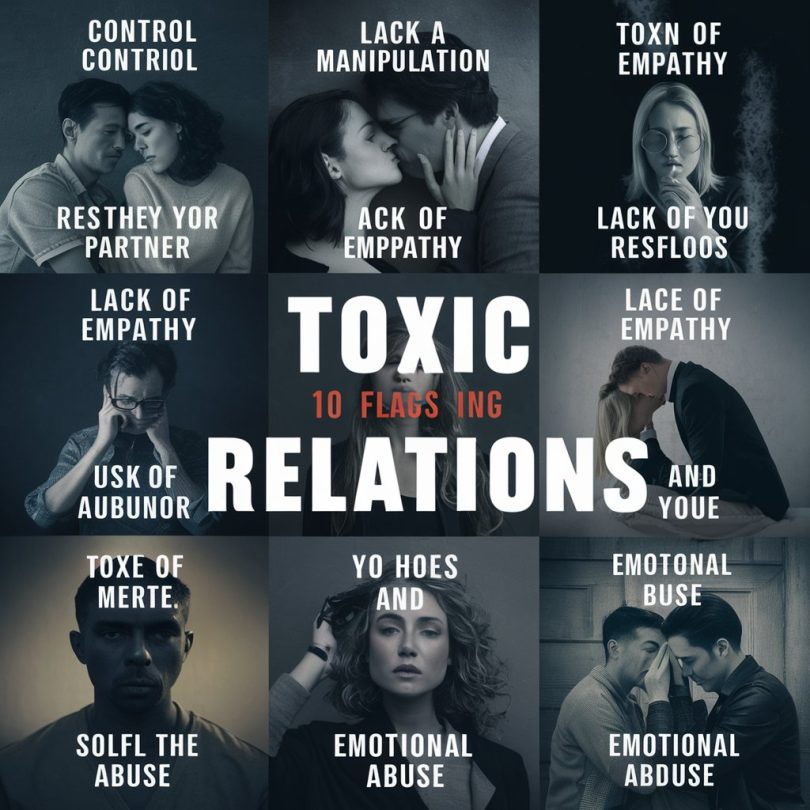In this article, I discuss 10 toxic behaviors that should not be tolerated in a relationship. At the end of this topic, I’ll share my opinion on what I think should be the ultimate deal breaker. Okay, so let’s jump right in!
Number one is idealization and love bombing.
As much as the highs may be exhilarating, just know that the lows will be just as low, if not lower. If you allow yourself to become addicted to someone, that person will have more control over you than you have over yourself. Accepting any form of love bombing might make you feel amazing in the moment, but just know that there will be a very hefty price to pay in the end.
Number two is deception.
Narcissists are masters of deception. This may be hard to detect at first, but if you’re noticing that your partner is distorting the truth, creating an exaggerated false persona, or lying either outright or by omission, then ask yourself why you’re not believing that they are who they are showing themselves to be. Now, I’m not necessarily talking about a zero-tolerance policy here. People can make a mistake; people can lie on occasion.
But if you’re seeing a pattern of dishonesty or deception, don’t dismiss it. Don’t accept excuses because what you’re seeing is probably just the tip of the iceberg. Soon you’ll figure out that your whole relationship is built on lies. Remember, narcissists operate on the basis of plausible deniability. They have an uncanny way of using ambiguity to maintain a facade of innocence or ignorance about their harmful and manipulative behavior. So, you may not have hard proof, but if your instincts are telling you that you’re being deceived, then trust yourself before it’s too late.
Related:
7 Tactics Narcissists Use To Control And Confuse Conversations
11 Early Signs a Relationship Won’t Last
10 Warning Signs Of Gaslighting In Relationships
7 Early Warning Signs of a Narcissistic Partner
Number three is a lack of accountability.
While it can be hard for anyone to acknowledge their flaws or admit fault, it’s important to recognize that when one partner consistently refuses to own up to their mistakes or apologize for their harmful words and actions, it is toxic. Sure, in the moment, maybe you or your partner can’t admit fault, but afterwards, when things cool down, you should both be able to acknowledge and take some accountability for the harmful things that were said or done while you were angry. When it comes to a narcissist, they can’t even take accountability for small trivial things without getting defensive, justifying themselves, or blame-shifting.
Number four is gaslighting.
Which is a form of psychological manipulation where a toxic person denies or distorts reality to make you doubt your perceptions, your memories, and even your sanity. Gaslighting undermines your sense of reality, making you more dependent on the toxic person for validation and guidance. So, if your partner is constantly making you question yourself, making you feel like you’re losing your mind or your grip on what’s real when this wasn’t the case before you met them, then just know that it’s extremely toxic and damaging to your mental health.
Number five is manipulation and control.
Toxic people use various manipulation tactics to control their partners. These controlling behaviors can be overt, such as telling you who you can talk to, what to wear, how much you can spend, and just controlling various aspects of your life. But they can also be a lot more subtle, such as passive-aggressive comments, shaming, and guilt-tripping. These covert tactics can be hard to detect, often leaving you feeling very confused and inadequate.
If you don’t submit to their need for control, you’ll be punished in ways that don’t match the situation. For example, let’s say your narcissistic partner tells you where to park and you choose to park the car in a different spot. Then they get upset and don’t speak to you for hours, all to punish you for not allowing them to control you.
The sixth thing you shouldn’t tolerate in your relationship is negative comparisons. If your partner is often letting you know, in subtle or not-so-subtle ways, that you’re not good enough, not attractive enough, not smart enough, or not as good as the next person, then you should seriously reconsider your relationship. Negative comparisons are extremely toxic and degrading. They erode your self-worth and create feelings of inferiority, inadequacy, and insecurity. You deserve more respect than that—we all do.
Number seven is exploitation.
Do you often get the feeling that your partner is using you for your contacts, your resources, or to meet their self-serving agenda? Does your partner expect you to drop everything to meet their needs but rarely reciprocate when you want or need something? Are your trusted friends and family concerned that you’re being taken advantage of? Now, it’s not uncommon for the balance of giving and taking in a relationship to fluctuate, but if your partner consistently prioritizes their own needs above yours and almost always minimizes, ignores, or invalidates your needs, it raises serious concerns. It would be wise for you to reassess the level of effort and investment that you’re putting into this relationship.
Number eight is isolating you from your loved ones.
Now, the way a toxic person isolates you from your support system isn’t always obvious. It’s not like they’re going to lock you up in your house. It’s more like an invisible prison. Instead of telling you that you’re not allowed to see your friends and family, they will judge your friends and family, plant seeds of doubt by accusing them of doing something to make them feel uncomfortable, or of betraying you in some way. This will make you feel like you can’t trust them or that you have to protect your partner from them.
This forces you to choose who’s more important to you. For example, maybe your partner tells you that they’re sick right before you’re heading out to your best friend’s bachelor party. Suddenly, they need your support on your night out. They might say, “Oh no, you go ahead, don’t worry about me, I’ll probably be okay.” But if you go, you will be punished.
It could be guilt trips about how you’re always choosing everyone over them, or it may end up in long, painful, unsolvable conflicts around who and what is most important to you. The point is, over time, it exhausts you, and it just seems easier to avoid people in order to not have to deal with your partner’s extreme reactions.
Number nine is repeated threats to the relationship.
If your partner is controlling you by threatening the security of the relationship, just know it’s a clear sign of toxicity. Repeated ultimatums are a way to manipulate and emotionally blackmail you by creating an atmosphere of fear, insecurity, and instability. Sometimes you may need to discuss the viability of your relationship, and sometimes the reality is that you need to talk about the possibility that you’re not right for each other, that you have different needs and values, and that despite your best efforts, you just can’t work things out.
But the key is to approach these discussions with empathy and a genuine desire to either address the issues and find a mutually acceptable resolution or to end the relationship in a healthy way. Repeatedly uttering threats and issuing ultimatums only serve to further breach your partner’s sense of security and trust.
Number ten is disrespecting boundaries.
Narcissists simply do not care about your boundaries. They will keep challenging and violating your boundaries until they get what they want. If you try to enforce your boundaries, you will be accused of being selfish and not caring about them. A narcissist will not show empathy or take accountability after breaching your boundaries. Instead, they will double down and disrespect your boundaries even further.
As promised, in my opinion, the biggest deal breaker in a relationship is the inability to communicate in mature ways that allow you to repair ruptures in the relationship. Every relationship has problems, and if you can’t work through these challenges because your partner stonewalls you, refuses to engage in meaningful conversations, gives you the silent treatment, withholds affection from you, completely shuts you out, or becomes irrational and attacking, there’s really no way to address concerns, resolve conflicts, or reconnect emotionally. Then your relationship is doomed. It will just devolve until it becomes devoid of trust, intimacy, and empathy, leaving you feeling rejected, isolated, and damaged.







Leave a Comment